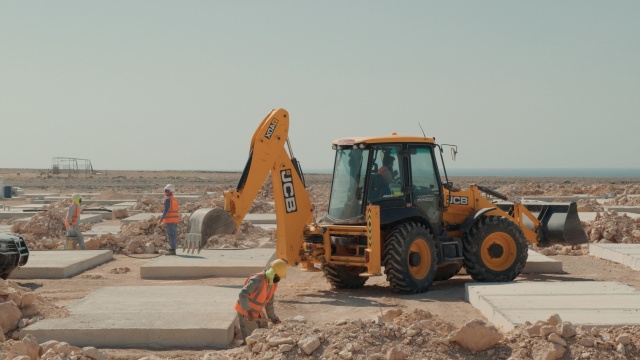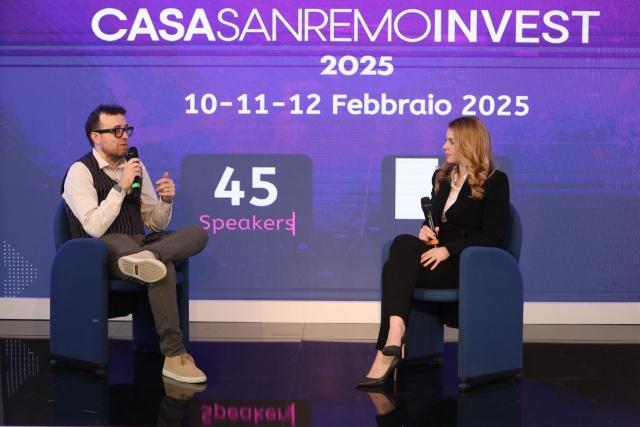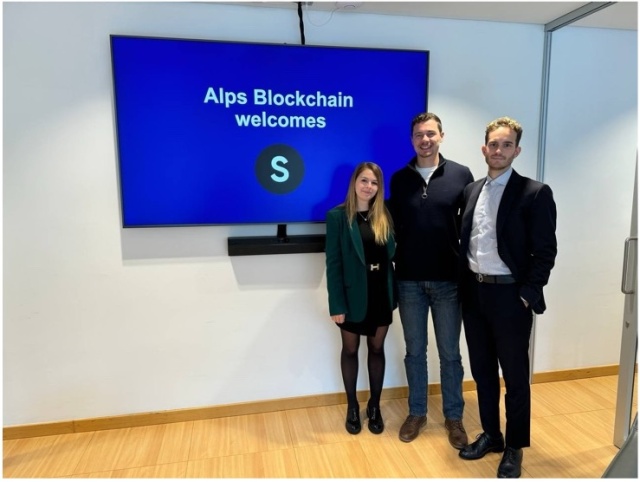Francesco Buffa and Francesca Failoni, 27 and 26 years old, were desk mates in high school when he fell in love with blockchain technology.
He studied it with passion and talked about it so much that Francesca became fascinated as well. They were only 20 and 19 years old when, in 2018 in Trento, they founded Alps Blockchain. If the main issue with this technology is its high energy consumption, their idea was to produce computational power to mine Bitcoin.
As recounted in an interview published on June 30, 2025, in Corriere Innovazione, by journalist Tiziana Tripepi, Alps Blockchain’s story began with a visionary intuition:
to efficiently use the energy generated by historic Italian hydroelectric plants—often underutilized—by turning them into distributed computing hubs for cryptocurrency mining.
"We were pioneers of a new approach: revitalizing historic Italian hydroelectric plants by installing mining farms inside them," Buffa explains.
The model is as simple as it is revolutionary: thanks to Italian regulations, plant owners can use a portion of the energy they generate on site. Alps Blockchain proposes using up to 30% of that energy to power mining farms installed directly at the site, offering higher economic returns compared to simply selling energy to the grid. The first plant became operational in 2020.
By 2021, Alps Blockchain already operated 20 active plants and reached a revenue of about €700,000. But with the outbreak of the Russia-Ukraine conflict and the subsequent rise in energy prices across Europe, the initial model risked becoming unsustainable. A shift in direction was needed.
Francesco decided to explore new markets outside Europe. He traveled to South America and arrived in Paraguay, where there is a massive energy surplus generated by the world’s second-largest hydroelectric power plant. Alps signed an agreement with the national energy authority and inaugurated its first proprietary data centers.
The expansion continued in Ecuador, in the heart of the Amazon rainforest, where Alps helped reactivate a hydroelectric plant that had been shut down during the pandemic. A new data center was installed through a co-investment with local owners.
Azimut and Global Growth: Oman and the United States
In 2022, revenue climbed to €17.3 million, attracting the attention of Azimut, one of Italy’s leading independent investment groups. In 2023, Azimut entered Alps’ capital with an initial €40 million investment.
Meanwhile, the company set its sights on an even more ambitious project: Green Data City, a tech hub under construction in Oman, where Alps’ mining farms are powered by surplus natural gas—an effort aligned with optimizing energy use and supporting the country’s renewable energy transition.
"Today, Green Data City hosts our mining farm, which consumes part of this excess gas, supporting the country's development plan geared toward integrating renewables," Buffa explains.
In June 2024, Azimut invested another €105 million, with funds allocated to both the Oman project and Alps’ entry into the North American market. The first step? Iowa, where Alps plans to build new data centers powered by excess wind energy.
A New Positioning: Infrastructure Builders
"The world is changing at an incredible pace, and we’ve had to evolve just as quickly," says Buffa.
"Today, we are infrastructure builders for mining: we convert energy into computing power and sell it to the highest bidder. We’re the only Italian company doing this—and a European leader."
But Alps Blockchain’s growth is not just technical or industrial—it’s also value-driven. As Buffa clarifies in the interview: "We don’t go into these countries to exploit their resources, but to make them more efficient, support their energy transitions, and help them develop renewables."
This message is reflected in the global numbers: according to the Cambridge Digital Mining Industry Report 2025, 52.4% of the electricity used for Bitcoin mining today comes from sustainable sources, and 42.6% from renewables. Alps Blockchain fits into this global transformation as the only Italian player with a structured presence in the industry's major markets.








